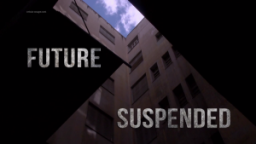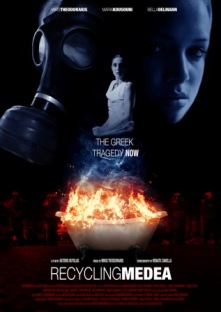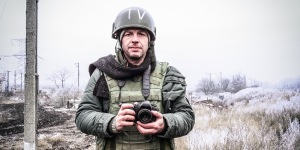Three exclusive film screenings on the ethics in times of crisis: in presence of Christian Suhr, Dimitris Dalakoglou and Asteris Kutulas
by pistrick
Three exclusive film screenings on the ethics in times of crisis:
in presence of Christian Suhr, Dimitris Dalakoglou and Asteris Kutulas
Symposium 28 October 2015
„Future suspended“ (2014) (United Kingdom/Greece) 35′
directed by the crisis-scape research team
German Premiere in presence of the director Dimitris Dalakoglou
What impact does a global financial crisis have on everyday life in the city? Crisis-Scape’s final 35′ documentary film traces the multiple transformations of crisis-ridden Athenian public space and those who traverse it.
Future Suspended is divided in three sections. “Privatised” explores the legacy of mass privatisation projects that preceded the 2004 Olympics, placing them in the context of present day privatisation schemes. “Devalued” gazes at the ever-shrinking spaces of migrants in the city and the devaluation of their lives that comes as a result. “Militarised” shows how, in face of the crisis, this devaluation turns into a generalised condition. Through its cinematic traversal of today’s Athens, „Future Suspended“ traces the rise of the authoritarian-financial complex and how this shrinks public space in the city, fuelling social despair and anger in return. Future Suspended is part of the research project at crisis-scape.net.
The research team consists of Christos Filippidis, Antonis Vradis, Dimitris Dalakoglou, Ross Domoney and Jaya Klara Brekke. All music for Future Suspended was composed by Giorgos Triantafyllou.
Recycling Medea (2013) (Germany) 73′
Halle Premiere in presence of the director Asteris Kutulas
Not just a music film. Not just a ballet film. Not just a political film essay. Here, an antique Greek tragedy serves as an astute metaphor for Greece’s and Europe’s current tragedy. Medea kills her own children. Society has turned against its offspring and thus ending their future.
The balletic retelling of a mother murdering her two kids, choreographed by Renato Zanella, is based on Euripides’ play and features music by Mikis Theodorakis. Script, sound and dance join forces in a powerful film that reflects the desperation of a society that spent all of yesterday turning its children into today’s lost generation.
The film begins with the first bars of Theodorakis’ music and ends with the final notes of his work, framing the occasional spoken word. Six solo dancers – among them the extraordinary Maria Kousouni as Medea – appear in expressive close-ups, lyrical dance scenes, revelatory moments in rehearsals; a blend of traditional ballet and modern expressionist dance, interlaced with images of masked teenagers rebelling and the heavily armored, incensed police. Protagonists from a different, merciless realm that has taken over our everyday reality.
These protagonists are flanked and contrasted by the disturbingly mild-mannered 15-year-old Bella, the story’s Innocence incarnate, who is destroyed by the hand of a hostile and selfish world. Against this background, she seems almost unreal; a fictitious character. On the other hand, certainly not fiction, are the words of Anne Frank’s, hidden away in her Amsterdam hideout and filling the pages of her diary. They contribute to Bella’s sense of isolation and provide her „voice“ and thoughts.
Medea, Jason, Bella and Anne Frank, composer and protestor-extraordinaire, Theodorakis, the choreographer Renato Zanella, the cameraman, the dancers and the rebelling, hooded teenagers hurtling stones at advancing police – they all become (in)voluntary actors in this complex tragedy spanning the ages.
„Descending with Angels“(2013) 80′ (Denmark)
Halle Premiere in presence of the director Christian Suhr
Muslim exorcism or psychiatric medication? ‚Descending with Angels‘ is a research-based, Danish film, which presents us with two highly different solutions to the same problem: namely Muslim Danes who are ‚possessed by evil spirits‘, called ‚jinn‘. In Århus, a local imam has specialised in exorcising demons, and we are present at one of the dramatic sessions. At the same time, he tries to urge the Århus immigrant community to take a calm attitude to magic and spirits, as it is only with God’s permission that something bad can happen to you. In the meantime, a professional psychiatrist tries to chart the phenomenon from a scientific perspective. The film is devoid of music and other dramatic effects and sticks to a sober style, which lucidly examines a complex and, until now, relatively unknown phenomenon in a psychological, anthropological and religious nature from two paradigms. Nonetheless, they have one thing in common: namely the idea that being healed is a consequence of submitting to an outside force, be it either God or biomedicine.



